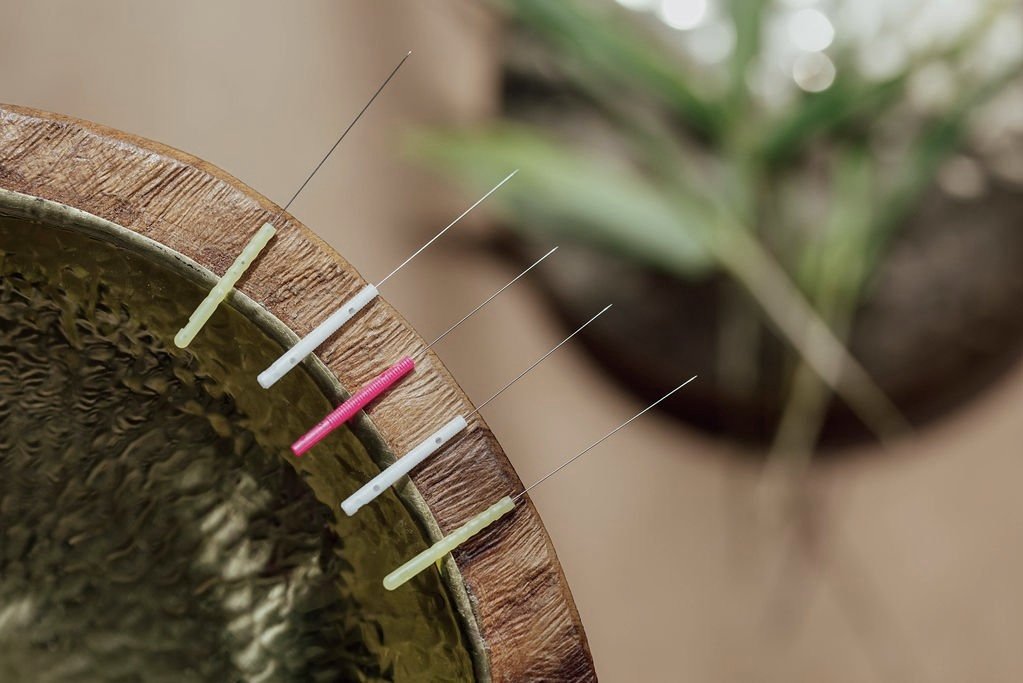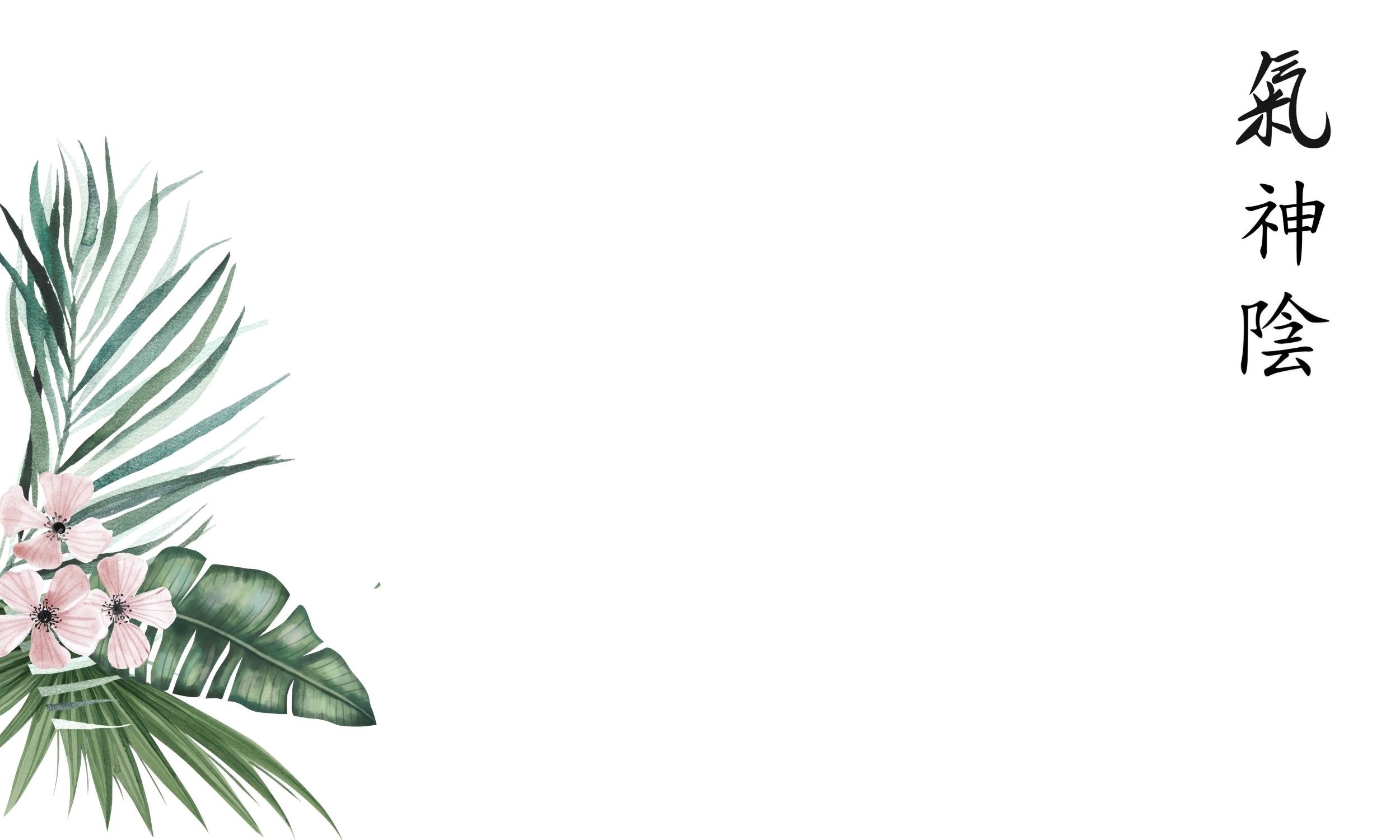
Frequently asked questions

Acupuncture FAQs
Holistic Healing from Ancient Wisdom
-
In Chinese Medicine, health is a dynamic balance between Yin and Yang. This balance is determined by looking at the individual in his/her entirety and therefore, collecting data on both, the psychological and physiological health of the individual.
The key to maintaining good health requires a free flow of Qi (energy). When it encounters blockages or stagnates, a disharmony or disease emerges.
Acupuncture is a process by which the normal flow of Qi (energy) is restored in the body and mind.
By placing small, sterile, single-use needles into specific acupuncture points along the meridian system = energetic pathways in our body, our Qi as well as the blood are stimulated to move around to rejuvenate or maintain the health of the organ systems.
-
Very safe. There are remarkably few complications.
-
The simple answer is everything- all ailments-physical, psychological, even spiritual.
The main reason I see patients seek out acupuncture is to better improve their health - whatever form it may take.
The World Health Organization, the National Institute of Health as well as the Mayo Clinic have listed several conditions treatable by a wide range of physical and emotional conditions including, but not limited to:
Pain Management- back pain, headaches, muscle sprains/strains or weakness, arthritis, acute injury, repetitive stress injury, carpal tunnel syndrome, chronic pain, fibromyalgia, sciatica, post-surgical recovery , cancer pain, musculoskeletal pain, osteoarthritis, chemotherapy-induced and postoperative nausea and vomiting.
Gynaecological problems- infertility including male & female fertility, irregular menstruation, painful menstruation, endometriosis, PCOS, PMS, menopause and perimenopause symptoms, women night sweats, hot flashes, post-menopausal symptoms, support along IVF treatments, menstrual cramps.
Digestive disorders- irritable bowel syndrome, constipation, diarrhoea, GERD (acid reflux, hyperacidity, indigestion), Crohn’s disease, ulcerative colitis.
Respiratory problems - allergies, asthma, bronchitis, common cold, sinusitis, cough .
Fatigue- low energy levels, postnatal depletion, hormonal imbalance, chronic tiredness or sleepiness, impaired decision-making and judgement, sore or aching muscles, moodiness and irritability, migraines.
Insomnia- sleep disorders, difficulty falling asleep at night, not feeling well-rested after a night's sleep, waking up too early, daytime tiredness or sleepiness, increased errors or accidents, irritability, depression or anxiety, difficulty paying attention, focusing on tasks or remembering.
Stress-related symptoms- anxiety, depression, mood swings, exhaustion or trouble sleeping, feeling of burnout, loss of willpower, high blood pressure, neck tensions, libido troubles, stomach or digestive problems, migraines.
Prenatal & postnatal conditions- breach babies, antenatal or postnatal depression, exhaustion, fatigue, lactation troubles, mastitis and a wide range of breastfeeding problems, miscarriage, UTIs.
Neurological disorders- persistent or sudden onset of headaches, chronic migraines, memory loss, lack of coordination, impaired mental ability.
Inflammation: The World Health Organization (WHO) recommends acupuncture for the treatment of 16 types of inflammatory diseases, and several clinical practice guidelines suggest acupuncture for the treatment of several inflammatory diseases, including, allergic rhinitis and Rheumatoid Arthritis (RA), osteoarthritis, Crohn's Disease, ulcerative colitis, psoriasis, eczema (Atopic Dermatitis), Multiple Sclerosis (MS), tendinitis, interstitial Cystitis, lupus (systemic lupus erythematosus or SLE) and other autoimmune diseases.
-
Acupuncture's effectiveness has been confirmed with research and is supported by medical organisations such as the World Health Organisation (WHO) and the National Institutes of Health's National Center for Complementary and Alternative Medicine.
By Western standards, acupuncture is believed to:
Increase and improve circulation
Change pain perception , altering brain biochemistry similar to western medicines
Increase tissue healing
Break up scar tissue
-
Sterile, superfine needles are placed at points that correspond to your specific needs. The needles are about the thickness of three hairs, are used only once, and are disposed of immediately following your treatment.
You will feel a light tap when the needles are inserted. After a moment, you may feel warmth, heaviness, tingling or pressure around the needle. These sensations are normal and desirable. Acupuncture promotes marked relaxation. Some people even fall asleep during the treatment. It is very common to experience a feeling of general wellbeing afterward.
-
A course of acupuncture therapy can vary.
Depending on the depth, severity and duration of a given condition, a course of treatment may range from a couple of visits to several visits.
For management and maintenance of chronic conditions, acupuncture therapy may be part of an ongoing health plan. Wellness and prevention acupuncture therapy may take place monthly, seasonally, or as needed.
-
Acupuncture needles are VERY thin - you have no idea how hard it was to take a few shots of them for this website!!
Most people feel no pain or very little when they are inserted.
What they would agree is that although the needles can cause temporary soreness, most would feel energised or deeply relaxed after a treatment.
-
Acupuncture is in Chinese Medicine understood as preventive medicine so technically, there is no need for symptoms to show up to require treatment.
The #1 reason people seek out acupuncture in the West is for pain management, specifically lower back pain. However, acupuncture is used to treat all ailments.
Literally - all ailments-physical, psychological, even spiritual.
-
Item description
-
Acupuncture might be covered under your health insurance plan. Many patients are reimbursed by their health-saving plans.
-
The Accident Compensation Corporation (ACC) includes acupuncture within the suite of allied health treatment modalities.
ACC just updated their protocol for acupuncture treatment to assist with injury recovery.
Under your ACC claim, you are now entitled to 12 acupuncture treatments to be used within a 12-week window from your first treatment.
No longer is the date of injury determinative of when to start/stop care and treatment protocols will now focus on consistent and succinct care within a shorter window of time.
Studies show that acupuncture works with frequency and consistency. There are stories where people claim that one miraculous treatment successfully cured them. And there are stories where people only receive 1 treatment and see no difference at all. Neither of these examples embraces how acupuncture works. We expect to see improvement and recovery over a window of time.
The treatment protocol is 6-8 treatments to see relief and to decrease pain levels; and then 4 treatments to keep the pain away.
As always, this protocol is modified for each individual - some respond more quickly, and others require more time.
Acupuncture charges under ACC cover vary from $30-$40/hour depending on your type of claim. Please feel free to contact me beforehand if you would like a confirmation.
-
Acupuncturists cannot file an ACC claim.
You will need your GP or a Chiropractor, or Physiotherapist or Osteopath to do this.
Acupuncture treatments can be provided under any ACC claim. You will get 12 visits to be used within 12 weeks from your initial visit. No longer is the date of injury determinative of when to start/stop care and treatment protocols will now focus on consistent and succinct care within a shorter window of time.
-
As of 2021, YES!!!!! But has not been enacted yet.
Under the 2021 Accident Compensation (Maternal Birth Injury and Other Matters) Amendment Bill:
“The defined list of maternal childbirth injuries has been developed with ACC and medical experts to focus on acute maternal childbirth injuries suffered by a birthing parent, caused by mechanical trauma during labour and delivery.
These injuries include:
Levator avulsion
Uterine prolapse
Obstetric fistula (includes vesico-vaginal, colo-vaginal and uretero-vaginal)
Labial, vaginal, vulval, clitoral, cervical, rectal and perineal tears
Ruptured uterus during labour
Obstetric haematoma of pelvis
Pudendal neuropathy
Injury to the tissues between the vaginal opening and the anus during childbirth affects around 85% of women who give birth vaginally.
It is still unclear however if midwives can fill an ACC claim. Please consult your GP for any questions on how to get ACC cover for birth injuries.
“Megan provides a safe holistic environment to facilitate personal healing and growth. The whole experience is one of nurture and peace. I highly recommend it.”
— Victoria McMath
Get to know me through the words of people just like you.

Book an appointment.
Select the treatment you believe will suit your needs.
Don’t hesitate to contact me if you’ve got more questions to ask beforehand: megan@integrativeacupuncture.co.nz